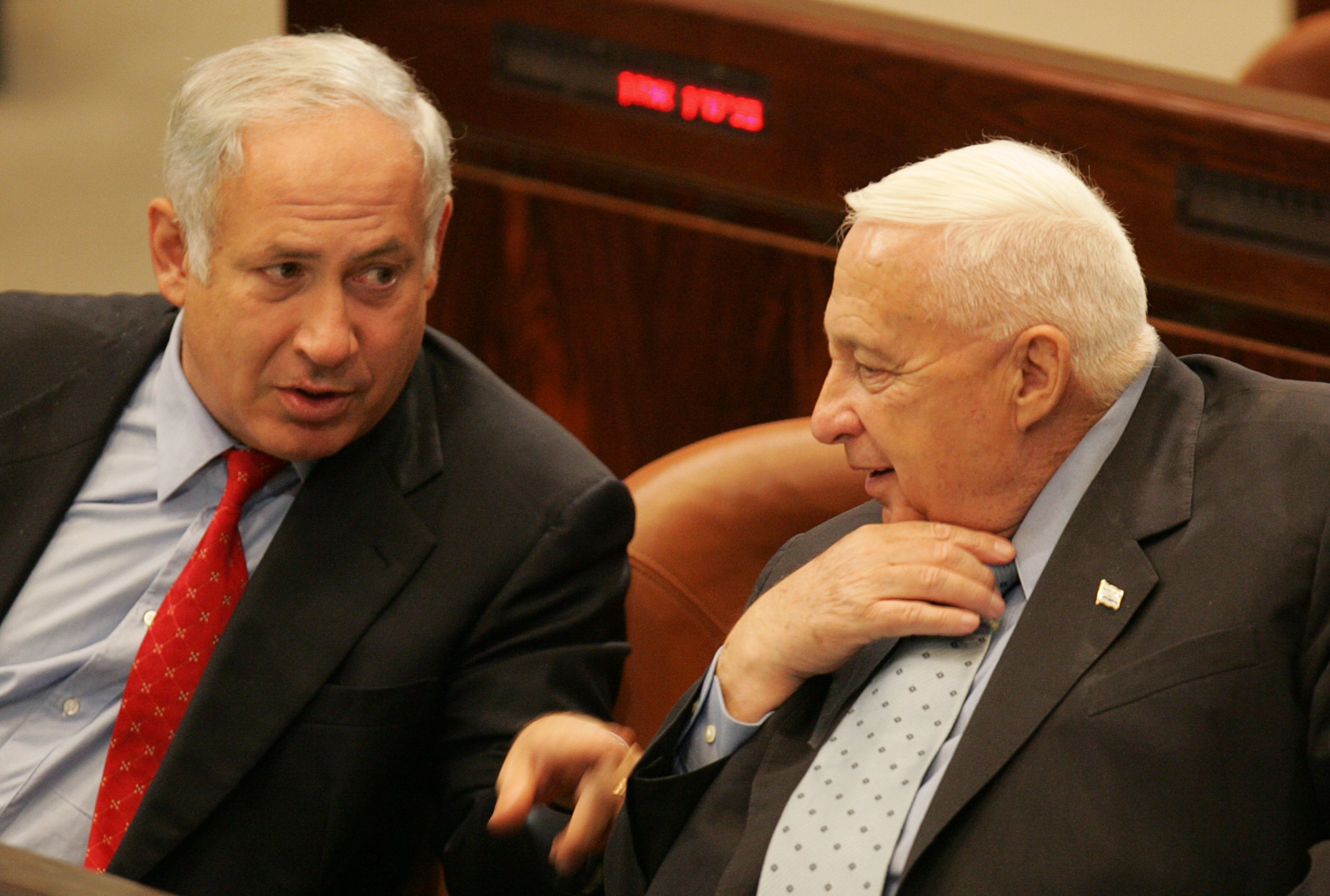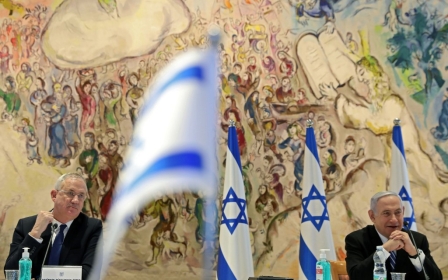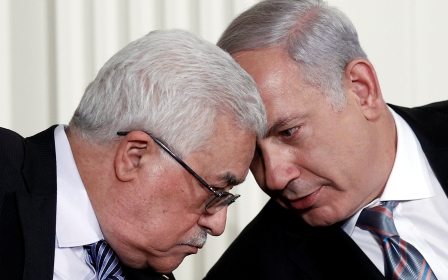Netanyahu echoes Ariel Sharon's rules of distraction with his annexation plan

It is the period 2003-2004, and Israeli Prime Minister Ariel Sharon is facing a long series of corruption inquiries.
First, in 2003, Sharon presents his plan for unilateral disengagement from the Gaza Strip. Then, in 2004, a bribery scandal known as the “Greek island affair” puts the leader under pressure to quit.
That year, the unilateral Gaza disengagement is adopted by Israel's government and implemented in 2005. Until this very day, many believe that pullout was nothing but Sharon’s attempt to distract public opinion from ongoing investigations into his conduct.
After all, it was the same Sharon who repeatedly stated in 2002 and in 2003 that the settlement of “Netzarim is no different from Tel Aviv,” or “the fate of Netzarim is the same as the fate of Tel Aviv”.
Well, it was not. Netzarim, a settlement in Gush Katif that became the symbol of the controversy over Israel’s presence in Gaza, was evacuated in Sharon’s disengagement plan.
New MEE newsletter: Jerusalem Dispatch
Sign up to get the latest insights and analysis on Israel-Palestine, alongside Turkey Unpacked and other MEE newsletters
That short history of far-reaching political decisions having intriguing timing as leaders seek to distract from legal entanglement came to mind this week, when Prime Minister Benjamin Netanyahu chose to refer to his annexation plan just a day after his corruption trial opened.
“The date to start is 1 July”, he declared at a Likud party meeting on Monday.
Annexation of the Jordan Valley and illegal Jewish settlements, some 30 percent of the occupied West Bank, is part of US President Donald Trump’s so-called “deal of the century”. But so, Trump's administration claims, is some form of future Palestinian state.
Yet Netanyahu was quick to reiterate his commitment to speedy annexation in tandem with the opening of his trial.
Again, just like Sharon’s disengagement, that was not his life-long dream, as remembered by Yossi Beilin, former justice minister and one of the architects of the Oslo Accords.
“We talked about the Jordan Valley,” Beilin told Middle East Eye, of a 2011 conversation with Netanyahu.
“He specifically mentioned the importance of the presence of the Israeli army in Jordan Valley for 40 years. I remember asking him why 40 exactly, but there was no explanation. One thing for sure - he never mentioned annexation.”
Even if there is another motivation behind the annexation plan, like a will to leave some legacy, it seems that playing with people - Palestinians and Israelis as well - is part of legal strategy adopted Israeli leaders when in trouble.
Or, in the words writer Agatha Christie put in the mouth of her prominent detective Hercule Poirot: “It’s too much of a coincidence to be a coincidence.”
It's not 2005 anymore
The comparison ends here. Israel in 2020 is not Israel in 2005.
Who would have thought back then that Sharon, the ruthless and cynical warmonger, could ever make Netanyahu look worse.
A small example: in the 2003 election campaign, a Supreme Court judge abruptly stopped Sharon’s broadcast on all channels when he used the airtime for propaganda instead of to refute allegations of another corruption scandal he was supposedly involved in.
This is not to say anything good about Sharon, who died in 2014. It's just that Israel, which some thought was at a nadir in the days of his premiership, has sunk so much lower since then.
In 2020, Netanyahu did not even bother to ask permission from the court. He arrived at the first session of his trial equipped with his own podium, brought from the prime minister’s office. There, he chose the perfect location inside the court and delivered a lengthy “J’accuse” speech, casting himself both as Alfred Dreyfus and Emile Zola.
All defendants, from petty thieves to presidents, claim innocence and persecution. Netanyahu went further, undermining the very foundations of the state he is supposed to lead.
“The trial today is an attempt to bring down me and the right-wing camp,” he claimed.
“Elements in the police and the prosecution joined forces with the leftist media… to manufacture absurd cases against me,” the premier complained.
The trial, he said, was a “court martial”, with a “Soviet aroma”.
Throughout this anti-democratic litany, several of his grateful newly appointed ministers could be seen surrounding him, wearing anti-coronavirus masks. Their presence added another bizarre touch to this dangerous horror show.
The prospect of civil war
An atmosphere of fear and intimidation prevails on the streets of Israel and even inside the Likud party.
“Netanyahu is inciting civil war to save himself,” Yisrael Beiteinu party head Avigdor Lieberman told the Times of Israel in the first remarks after the trial opened.
David Passig, an Israeli futurist and adviser to several governments, told MEE: “The probability of a civil war is gaining momentum."
“The struggle over the nature of the country is reaching a climax,” Passig says, adding that it is an inevitable stage in any process of nation-building.
“I just hope it won’t be like the civil war in France, where the whole elite was slaughtered. Bibi’s trial is a symptom of something much bigger,” he added, referring to Netanyahu by his widely used nickname.
That nickname has attached itself to a sort of ideology. “Bibism” is a term used to capture the sentiment Passig describes.
In a speech he delivered in parliament after the opening session of Netanyahu’s trial, Yisrael Beitenu MP Eli Avidar compared “Bibism” to “Nasserism”, the movement named after late Egyptian leader Gamal Abdel Nasser. Avidar claimed that both ideologies have no guiding lines - they simply adjust to the changing needs of their leaders.
As the Bibi show was playing inside the court, thousands of ecstatic “Bibists” held a noisy support rally to express love for the leader and disdain for democratic systems.
The voices and chants penetrated the thick walls of the court building. They certainly penetrated the minds of many others.
A public opinion poll published on Radio 103FM just three days after the opening session reaffirmed the notion that Netanyahu has a metaphoric “license to kill” all law enforcement institutions. In the recent electoral poll, his Likud party gets 41 seats in parliament, compared to the 36 won in March.
Today, he would not even need this farce of an “emergency government” with Benny Gantz's Blue and White, which scored 12 seats in the poll, compared to 19 in March. The lethargic politeness of Blue and White does not pay off in Israel 2020.
Opposition choices
Less than two weeks into the forming of this strange government, the question of its very validity divides the tiny centre-left into two camps: is it worth staying in this government?
Some, like Yossi Beilin, believe that under the circumstances it is still of moral and practical importance to have the justice portfolio in the hands of Blue and White.
Others already reached the conclusion that it is another Netanyahu government, in which a weakening Blue and White has no impact.
The balance of power will soon be put to test if - and when - the process of annexation starts.
Blue and White basically supports Trump’s “peace plan” but is committed to put some diplomatic restraints on what Netanyahu presents as a done deal.
If they fail, annexation presented to Israelis as their security salvation may simply amount to the salvation of one man currently on trial.
Middle East Eye delivers independent and unrivalled coverage and analysis of the Middle East, North Africa and beyond. To learn more about republishing this content and the associated fees, please fill out this form. More about MEE can be found here.





